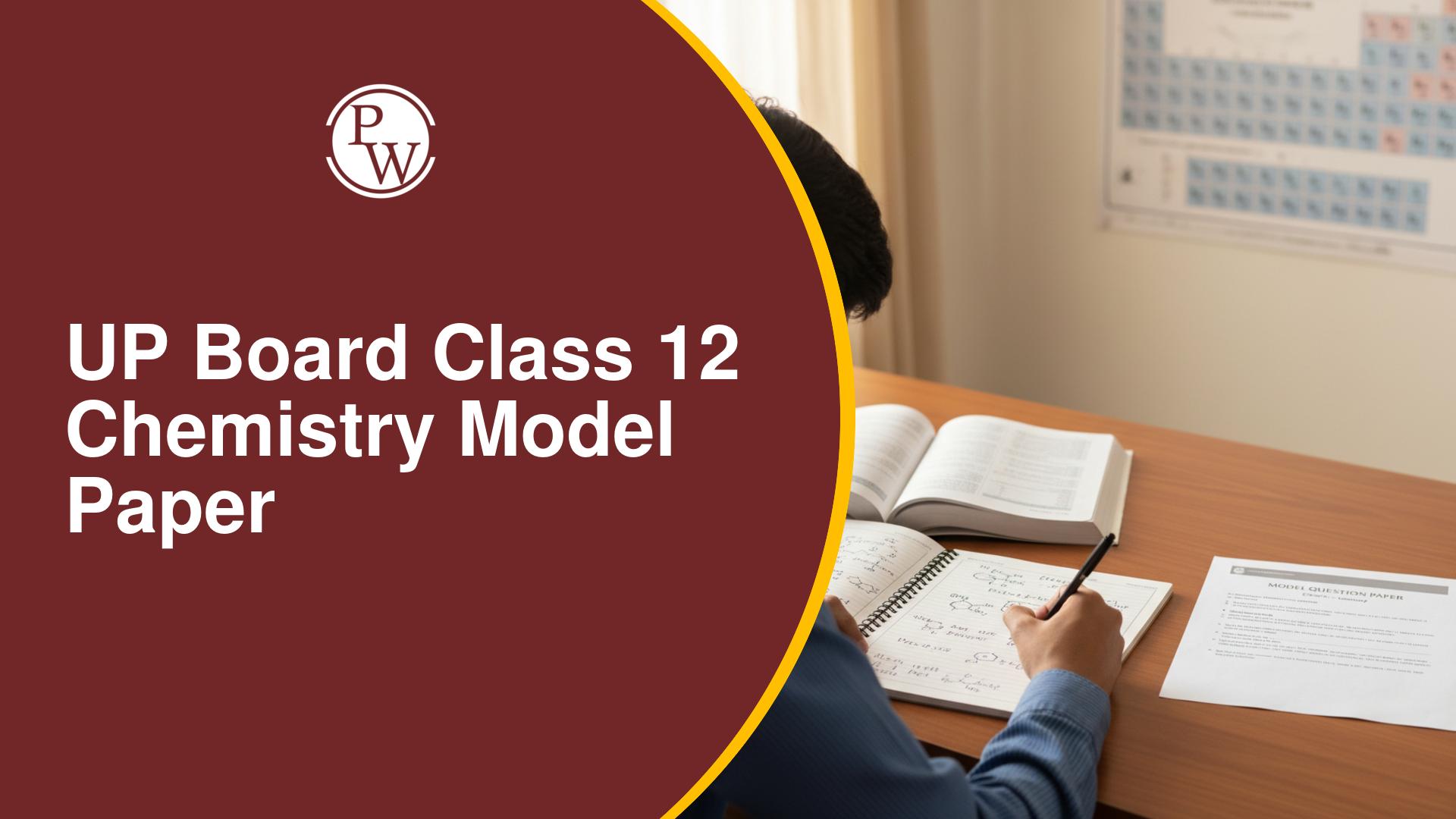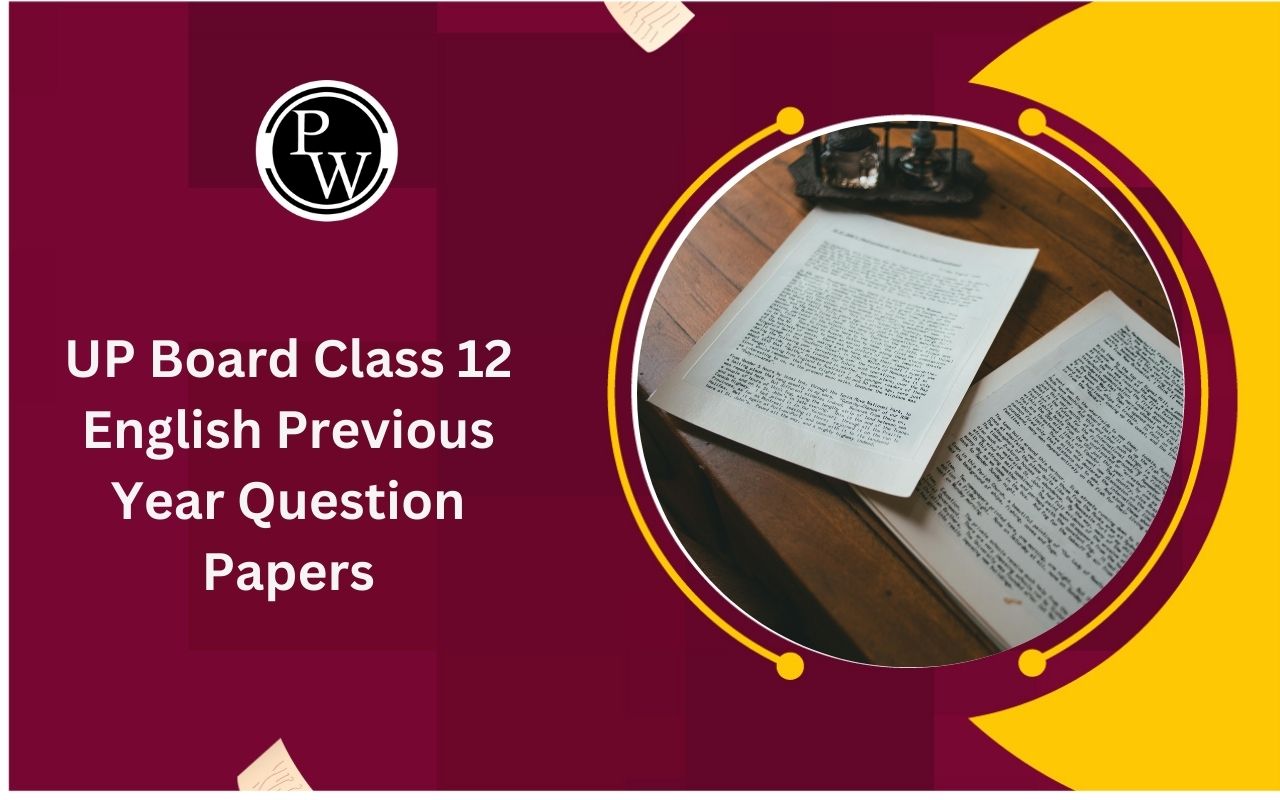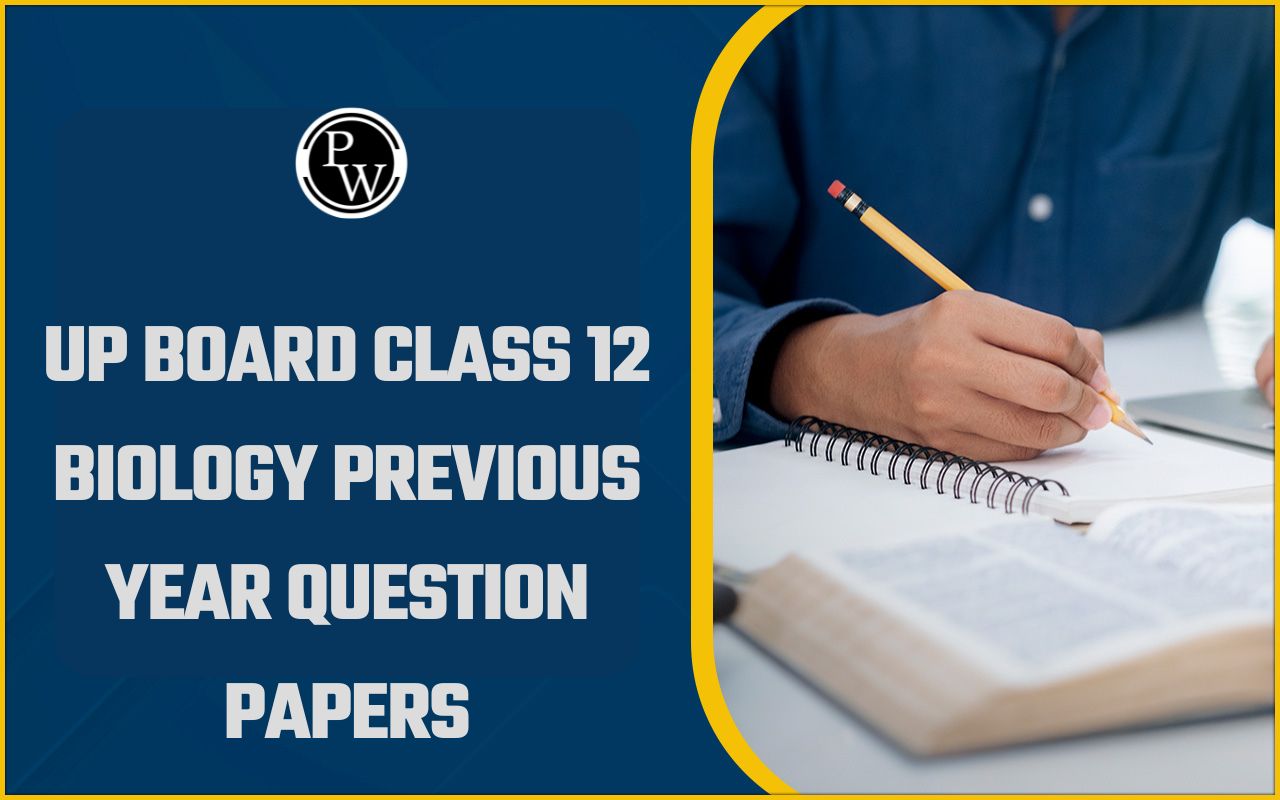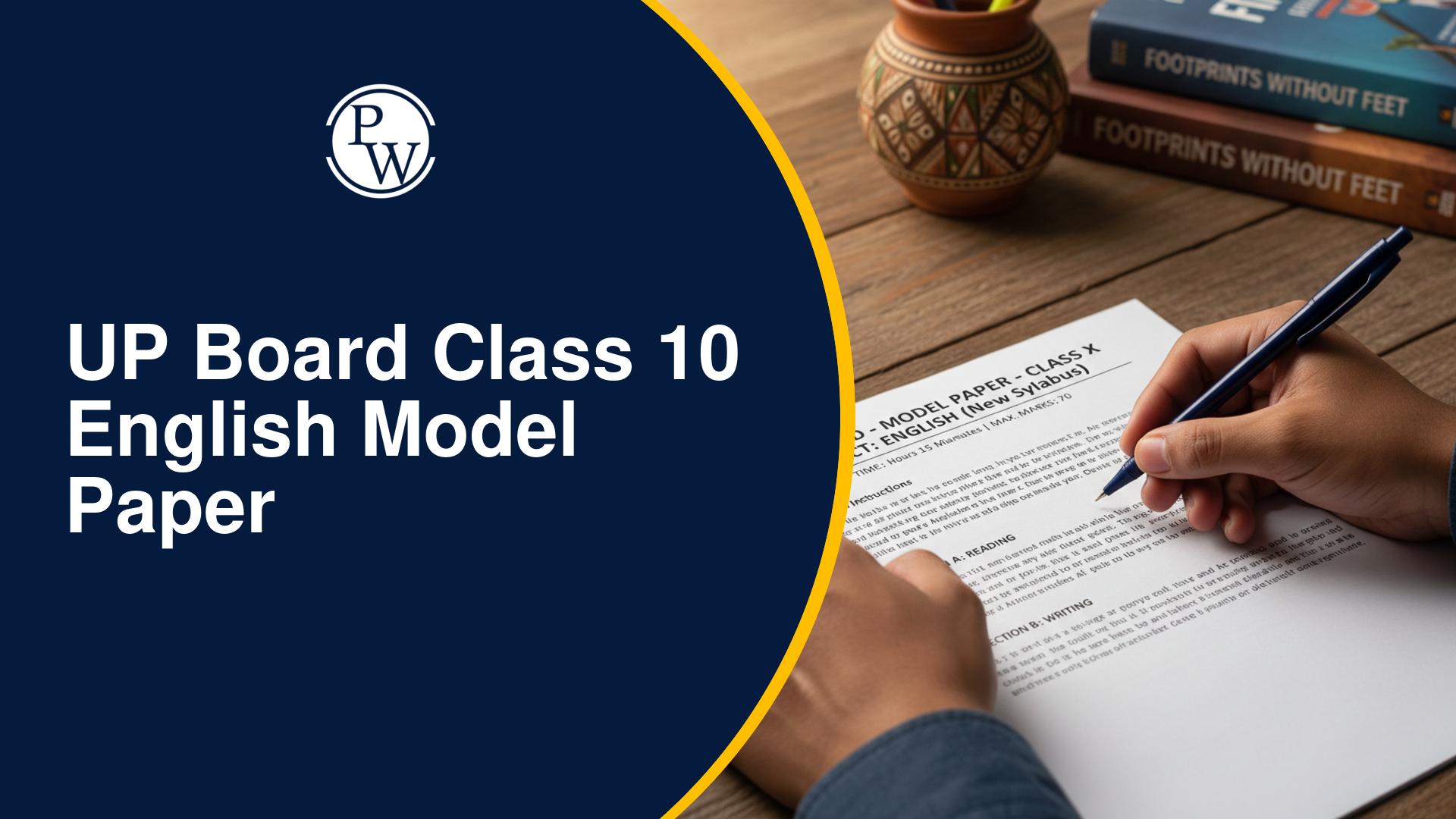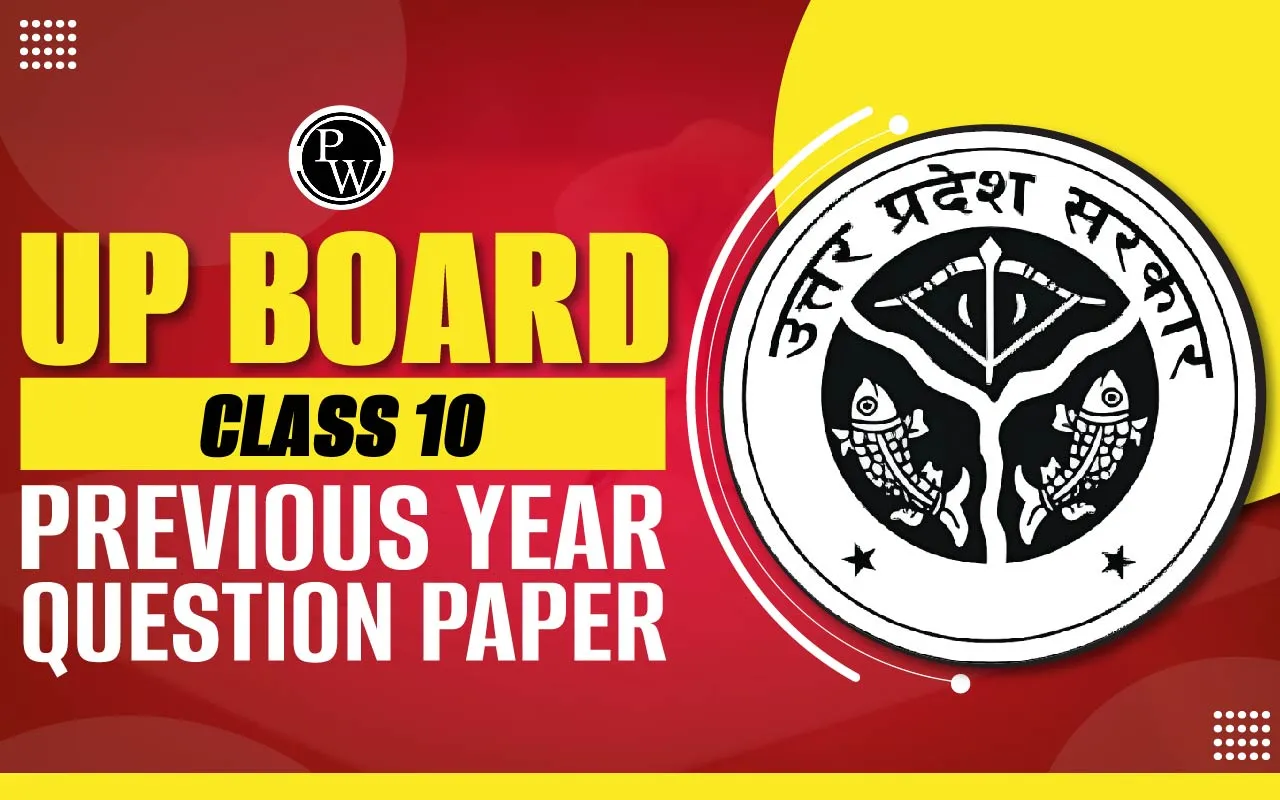
UP Board Class 9 Syllabus 2025-26: The Uttar Pradesh Madhyamik Shiksha Parishad (UPMSP) has released the UP Board Class 9 Syllabus 2025-26. which serves as a crucial guide for students preparing for the academic year. This syllabus is carefully designed to provide a structured learning and aligns with the NCERT curriculum. By following the up board Class 9 Syllabus 2025-26, students can clearly understand the subjects, topics, and marking scheme, making their exam preparation more focused and effective.
UP Board Class 9 Syllabus 2025-26 emphasizes conceptual clarity and practical knowledge. It includes syllabus of all the core subjects as well as language subjects. Additionally, students studying in Hindi-medium can refer to the UP Board Class 9 Science syllabus in Hindi to grasp concepts more easily.
UP Board Class 9 Syllabus 2025-26 Overview
UP Board Examinations give importance to conceptual clarity as well as promote practical knowledge. The syllabus focuses on the understanding of basic concepts ,and to test this knowledge, the internal assessment in every subject is introduced.
The written exam and internal assessment will be conducted to test the knowledge of the students. The internal assessment is done on the basis of periodic tests, projects, assignments, or maybe class participation and presentations.
UP Board Class 9 Syllabus Subjects 2025-26
UP Board Class 9 syllabus 2025-26 includes a wide range of subjects to educate students in the right direction with the right approach. Here is the outline of all the subjects:
-
Hindi (Code: 901)
-
Elementary Hindi (Code: 902)
-
Gujarati (Code: 903)
-
Urdu (Code: 904)
-
Punjabi (Code: 905)
-
Bangla (Code: 906)
-
Marathi (Code: 907)
-
Assamese (Code: 908)
-
Oriya (Code: 909)
-
Malayalam (Code: 915)
-
Nepali (Code: 916)
-
English (Code: 917)
-
Sanskrit (Code: 923)
-
Mathematics (Code: 928)
-
Home Science (Code: 930)
-
Science (Code: 931)
-
Social Science (Code: 932)
-
Computer (Code: 941)
UP Board Class 9 Syllabus 2025-26 PDF Download Link
You can now access the official UP Board Class 9 Syllabus 2025-26 in PDF format from here. The PDF provides a complete chapter-wise and subject-wise breakdown of all courses, including Science, Mathematics, Hindi, English, and Biology. It is a reliable resource for understanding the topics, marking scheme, and practical guidelines, ensuring focused and effective exam preparation.
Downloading the syllabus PDF will help in planning studies efficiently and tracking progress across subjects. It also includes the syllabus for all subjects as well as language syllabus for both Hindi and English mediums.
Do you need help with your homework or preparing for exams?
Study without using the internet
Steps to Download UP Board Class 9 Syllabus 2025-26 PDF
You should follow the below given steps to download the syllabus:
-
Visit the official UPMSP website: upmsp.edu.in
-
Navigate to the “Syllabus” section.
-
Select Class 9 from the list of classes.
-
Click on UP Board Class 9 Syllabus 2025-26 PDF.
-
The PDF will open in a new tab. Click the download button to save it to your device.
UP Board Class 9 Syllabus 2025-26 Subject-wise
UP Board Class 9 Syllabus 2025-26 covers several units and chapters, providing complete coverage of important concepts that students must be aware of. Students must thoroughly go through the syllabus in order to prepare for the exams effectively.
You should also solve UP Board 9th Previous Years’ Papers to gain insights about the exam pattern and type of questions that appear in the exam. Here’s the syllabus for all subjects:
UP Board Class 9 English Syllabus 2025-26
UP Board Class 9 English Syllabus for the academic year 2025-26 is structured to test both the student's language proficiency and literary understanding. The written examination is for 70 marks and is divided into four sections. Here is the UP Board Class 9 English Syllabus 2025-26:
|
UP Board Class 9 English Syllabus 2025-26 |
||
|
Section |
Topics Covered |
Marks |
|
Reading |
Unseen passages, comprehension questions |
10 |
|
Writing |
Letter writing, applications, essays, and descriptive paragraphs |
10 |
|
Grammar |
Parts of speech, tenses, narration, voice, punctuation, and translation |
15 |
|
Literature |
Prose, Poetry, and Supplementary Reader from the prescribed textbook |
35 |
|
Total (Written Exam) |
- |
70 |
The remaining 30 marks are for internal assessment, which is based on four monthly tests, creative writing, oral expression, assignments, and class participation throughout the year.
UP Board Class 9 Maths Syllabus 2025-26
Here is the Class 9 Maths Syllabus UP Board 2025-26:
|
UP Board Class 9 Maths Syllabus 2025-26 |
||
|
No. |
Chapter |
Marks |
|
I |
Number System |
12 |
|
II |
Algebra |
22 |
|
III |
Coordinate Geometry |
04 |
|
IV |
Geometry |
16 |
|
V |
Mensuration |
12 |
|
VI |
Statistics |
04 |
|
Total |
- |
70 |
The remaining 30 marks are for internal assessment which includes periodic tests, projects, mathematical activities, assignments, homework, and class participation and presentations.
UP Board Class 9 Social Science Syllabus 2025-26
Here is the UP Board Class 9 syllabus for Social Science:
|
UP Board Class 9 Social Science Syllabus 2025-26 |
||
|
Section |
Subject |
Marks |
|
I |
Indian and the Contemporary World - 1 (History) |
20 |
|
II |
Contemporary India- 1 (Geography) |
20 |
|
III |
Democratic Politics (Civics) |
15 |
|
IV |
Economy (Economics) |
15 |
|
- |
Total (Written Exam) |
70 |
The internal assessment which carries 30 marks, allows students to engage with the study material through periodic tests and assessments.
Class 9 Science Syllabus UP Board 2025-26
UP Board Class 9 Science syllabus in hindi must be analyzed well for exam preparation. Here is the Class 9 Science Syllabus UP Board 2025-26:
|
UP Board Class 9 Science Syllabus UP Board 2025-26 |
||
|
Units |
Topics Covered |
Marks |
|
Unit 1 |
Matter- Nature and Behaviour |
23 |
|
Unit 2 |
Organisation in the Living World |
23 |
|
Unit 3 |
Motion, Force, and Work |
21 |
|
Unit 4 |
Food Production & Improvement |
03 |
|
- |
Total |
70 |
Like other subjects, in Science also, 30 marks are dedicated to internal assessment but here it is for practical experiments.
Class 9 Hindi Syllabus UP Board
Here is the Class 9 Hindi Syllabus UP Board:
|
UP Board Class 9 Hindi Syllabus 2025-26 |
||
|
Section |
Topics |
Marks |
|
गद्य खंड |
अपठित गद्यांश (Unseen Passage) |
10 Marks |
|
काव्य खंड |
अपठित काव्यांश (Unseen Poetry) |
5 Marks |
|
साहित्य खंड |
पाठ्यपुस्तक आधारित प्रश्न (Prose & Poetry from Textbook) |
30 Marks |
|
व्याकरण खंड |
संधि, समास, अलंकार, मुहावरे, विलोम-पर्याय, वाक्य रचना |
15 Marks |
|
रचनात्मक लेखन |
निबंध लेखन, पत्र लेखन, अनुच्छेद लेखन |
10 Marks |
|
Total |
- |
70 Marks |
The 30 marks are here allotted to test series, conducted in August and December month, including MCQs tests.
UP Board Class 9 Computer Syllabus 2025-26
Here is the UP Board Class 9 syllabus for Computer:
|
UP Board Class 9 Computer Science Syllabus 2025-26 |
||
|
Unit No. |
Unit Name |
Marks |
|
Unit 1 |
Computer Fundamentals and Evolution |
10 |
|
Unit 2 |
Operating System |
10 |
|
Unit 3 |
Office Tools |
10 |
|
Unit 4 |
Programming Techniques |
10 |
|
Unit 5 |
Computer Communication and Networks |
10 |
|
Total |
- |
50 |
The syllabus also includes a Practical Examination of 20 marks, and the remaining 30 marks for internal assessments.
UP Board Class 9 Syllabus 2025-26 Benefits
UP Board has framed the Class 9 syllabus 2025-26 to support holistic learning and smooth academic progress. Below are some of the key benefits of following the updated syllabus:
-
As UP Board follows NCERT, the UP Board Class 9 syllabus aligns with topics covered in competitive exams like NEET, JEE, and UPSC. This familiarity with the syllabus allows students to build a strong conceptual base.
-
It’s important for students to have a clear understanding of the syllabus, since Class 9 is a stepping stone for Class 10. A strong understanding ensures a foundation for advanced topics in Class 10.
-
Subjects like Maths and Science in Class 9 introduce practical applications which in present prepares students for real-life problem-solving and experiments in higher classes.
-
The syllabus allows students to predict the most important and high weightage topics, making exam preparation more efficient.
-
Practical knowledge is also important in the real world. Subjects like Social Science, Hindi, Science, encourage students to go beyond textbooks, fostering independent learning.
UP Board Class 9 Syllabus 2025-26 FAQs
What is the UP Board Class 9 Syllabus 2025-26?
Where can I download the UP Board Class 9 Syllabus 2025-26 PDF?
What is covered in the UP Board Class 9 Science Syllabus in Hindi?
What chapters are included in the Class 9 Maths Syllabus UP Board 2025-26?
What is included in the UP Board Class 9 English Syllabus 2025-26?




